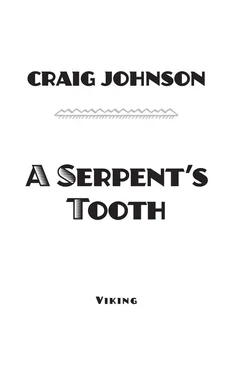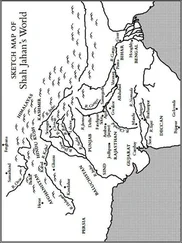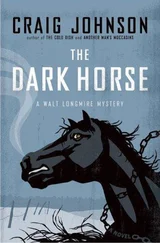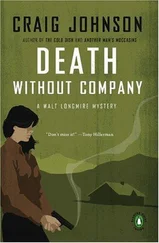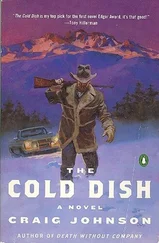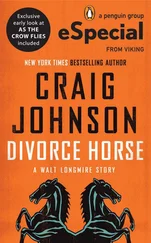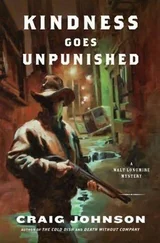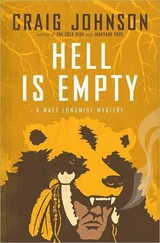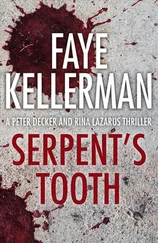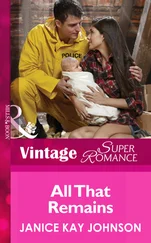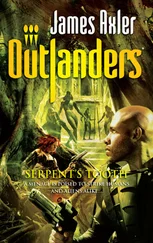“I’ll get it back.”
I turned her around and placed my arm over her shoulder, tacking her through the wind and back toward Cord. “I bet you will.”
• • •
Henry studied me as I drove Vic’s unit, glancing periodically at the large manila envelope lying on the center console between us, and the small white box. “What about Lockhart, Gloss, and that bunch?”
I set the cruise control as I took the on-ramp to I-25, discovered it didn’t work, and kept my foot on the accelerator. “It’s an interstate jurisdiction, so the FBI field office in Casper is in charge.”
He continued to study me. “The Department of Justice.”
“Yep.”
“The Department of Justice, clients of the Boggs Institute that employed Mr. Lockhart?”
“The same.” I glanced around at the clutter that accompanied Vic’s vehicle and thought about how the thing appeared to be more of a rolling nest than a police unit.
“Kind of a mess, hmm?”
My voice sounded a little sharp as I spoke. “Most certainly a mess, but there’s nothing I can do about that either.”
He didn’t say anything more to me as we drove the forty miles back to Durant, but he looked at me questioningly as I took the early exit and jumped on old Highway 87 and turned south. After a few miles, I pulled over to the side of the road under the Lazy D-W ranch gate.
I slid the heavy envelope from the loose piles of refuse on the console and handed it to him, motioning for him to place it in the large rural-delivery mailbox.
He stared at the name on the envelope and then his eyes came back to mine. “What is this?”
“What’s it to you?”
“I simply do not wish to be party to mail fraud.”
I looked down the road. “Oh, it’s not fraudulent.”
He felt the heft of the thing. “This is the file on both Lockhart and Gloss?”
“Maybe.”
He smiled the close-lipped smile that was his trademark, the one with no warmth in it. “You are sacrificing them to Donna Johnson?”
I shrugged. “You live by the trench coat, you die by the trench coat.” I sighed, adjusted my hat, and lodged my chin in the web of my hand. “Donna Johnson can make their lives miserable.” I turned my head to look back at him. “I think they deserve that.”
He reached out, opened the mailbox door, and deposited the envelope inside. He closed it, even going so far as to raise the flag.
• • •
I dropped Henry off at the office where he could grab his ’59 Thunderbird for the last ride of the season. He said he wanted to accompany me over to Durant Memorial, but that he had a full Indian uprising out at The Red Pony and that if he didn’t get out there and relieve the bartender who was covering, he would likely find the place burned to the ground.
“Please don’t mention buildings burning to the ground.”
He leaned on the door of the Baltic Blue convertible he called Lola, the gloom of evening reflecting the available light off the T-bird’s glossy flanks. “Sorry.” His face hardened a little with the next statement. “Does it bother you that Big Wanda is gone?”
I thought about it. “Not so much; Tomás told me that he had had her taken away.”
“And the body of Tomás?”
I stared through the windshield and looked south, over the rolling foothills of the Bighorn Mountains to the plains of the Powder River country, my perspective down low among the sagebrush and the buffalo grass, racing across the ground until in my mind’s eye I could see the tall man, his blood pouring into Sulphur Creek like an offering.
“You mean the lack thereof?”
“Yes.”
The Division of Criminal Investigation had combed the area, but they didn’t know it as well as I did—and they didn’t have an Indian scout. “I was thinking about taking a drive down to Sulphur Creek in the morning and looking for a sign.”
“What time?”
“Early.” I leaned slightly out the window of the SUV and turned my head, listening to the distant roar of the high school football game at the southern end of town. When I glanced back at Henry, I noticed his face had been drawn in that direction, too.
“Worland . . .” He thought for a moment. “Warriors?”
I nodded. “Go, Dogs.”
He murmured back. “Go, Dogs.”
“They’re retiring our numbers at halftime.”
A puzzled look spread across the Cheyenne Nation’s face. “I hardly remember my number.”
“Then you won’t miss it.”
“No, I would imagine not.”
“Thirty-two.”
He nodded his head and smiled. “Ahh . . . Yes.”
We listened as the band played the Durant Dogies’ fight song, and there was more cheering. “Do you think things were simpler back then?”
The Bear stared at the macadam surface of the parking lot. “No.”
“No?”
“No.” He fished the keys from the pocket of his jeans and drew open the door of the concours vintage automobile. He settled himself in and hit the starter on the motor of the big square Bird.
He said something more, and the rest of his answer hung there in the slight breeze. I watched in the side-view mirror as both the stately beasts made the right on Fort and the left on Main and headed out toward the Rez. Listening to the sounds drifting up from Hepp Field, I was drawn back to those days when the only thing I had to concern myself with was making sure that our star quarterback, Jerry Pilch, didn’t get flattened.
Henry Standing Bear was right.
I pulled the old unit into gear and drove over to Durant Memorial. Isaac Bloomfield was drinking coffee and leafing listlessly through a five-month-old copy of Wyoming Wildlife at the reception area.
“How come you’re not at the game, Doc?”
“Not my idea of a game. Anyway, I’ll be here when the breaks, sprains, strains, and bruises show up.” He studied me and the small white box in my hands. “I want to tell you how sorry I am.”
I nodded but didn’t say anything.
“I suppose it’s an occupational hazard, but you hate to see something like this happen.”
My head nodded of its own volition.
“You’re going to want to see him before they take his body away?”
I nodded some more and watched as he closed the wrinkled magazine and brought the Styrofoam cup of coffee with him. We pushed our way through the double swinging doors of the Emergency Room’s inner sanctum and made our way toward room 31, the makeshift morgue.
Isaac opened the door and ushered me inside but then closed it after me; he knew my practices.
You think you’d get used to it, but you don’t; the lifeless form of an animal not unlike yourself. There is, appropriately enough, an otherworldly stillness to the dead and especially when it is someone young.
I placed a hand on the bare shoulder, feeling the coolness of the flesh, another reminder that the spirit that was here was now gone. I had hired the young man from a good family over in Sheridan, and he had been a fine officer. Next Thursday they would put his body in a grave, another casualty in the war I’d been fighting for almost my whole life.
All for a few gallons of crude oil.
As the saying goes, a cynic is the man who knows the price of everything and the value of nothing. Toy soldiers like Gloss and Lockhart would never understand the value of a single human life in comparison with their strident beliefs in geopolitical positioning. They had never been forged in the fire of battle where you learn that the only thing left in those stark and startling moments and the reason you fought in the first place was for the man next to you, your brother in arms.
I wished that I could take Gloss and Lockhart with me when I made what would feel like a long drive to the next county on Thursday, so that I could introduce them both to Chuck Frymire’s family and let them look into the bereaved eyes of the young man’s mother and father and fiancée, in order to see for once where that value lies.
Читать дальше
